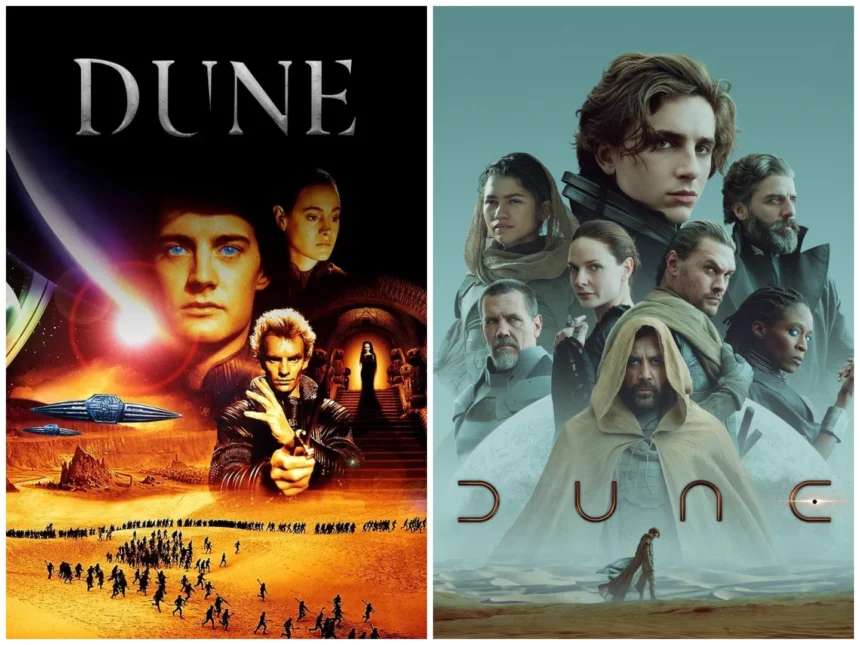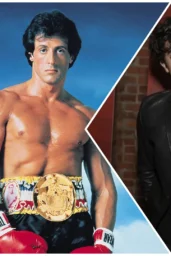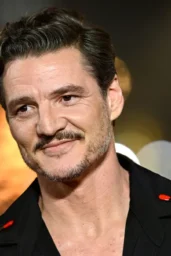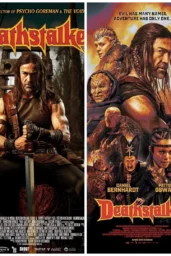Look, I'll say it: watching Kyle MacLachlan's Paul Atreides stumble through that infamous “tell me of your homeworld, Usul” scene still gives me chills. Not the good kind—the kind where you're cringing and captivated simultaneously. That's Lynch's Dune in a nutshell: a beautiful catastrophe that somehow feels more alive than its polished, Oscar-nominated successors.
Denis Villeneuve's Dune films are masterpieces of technical craft. I've said it before, I'll say it again—they're gorgeous, reverent, and everything a modern blockbuster should be. But after rewatching Lynch's 1984 trainwreck for the umpteenth time (thanks to that shiny new 4K release), I'm struck by something unsettling: the “failure” captures essential elements of Frank Herbert's vision that the “successes” somehow… don't.
This isn't contrarian film criticism for clicks. It's an uncomfortable truth about adaptation, ambition, and what happens when Hollywood plays it safe versus when it goes spectacularly wrong.
The Cast That Disappeared Into Arrakis
Here's where Lynch's Dune pulls off something genuinely miraculous—and I use that word carefully. The 1984 cast doesn't just play these characters; they become vessels for Herbert's alien psychology.
Kyle MacLachlan's Paul starts as this genuinely innocent kid—awkward, earnest, slightly overwhelmed by his destiny. Watch his early scenes with Gurney Halleck or his mother; there's boyish vulnerability there that makes his transformation into the Kwisatz Haderach feel tragic rather than inevitable. Timothée Chalamet, bless him, arrives on screen already brooding like he knows he's destined for messiah-hood. The journey's half over before it begins.
But it goes deeper than just Paul. Kenneth McMillan's Baron Harkonnen is repulsive—not just villainous, but genuinely alien in his grotesqueness. When Stellan Skarsgård plays the role, he's menacing, sure, but he's still recognizably human. McMillan's Baron exists in some other evolutionary branch entirely.
And then there's Sting. Good lord, Sting as Feyd-Rautha, strutting around in that metal codpiece like some demented rock god. It's ridiculous. It's perfect. It's exactly the kind of casting choice that modern Hollywood would focus-group into oblivion.
The problem with Villeneuve's otherwise stellar ensemble—Oscar Isaac, Rebecca Ferguson, Jason Momoa—is that they're too present. You're watching Oscar Isaac play Duke Leto, not witnessing Duke Leto exist. There's a difference, and Lynch's cast understood it instinctively.
Production Design That Breathes
$40 million in 1984 dollars versus $165 million today. Those numbers tell a story, but not the one you'd expect.
Lynch's team had to build Arrakis by hand—literally construct those massive sets, sew those intricate costumes, sculpt those wonderfully bizarre headdresses. The result feels lived-in in ways that CGI environments, no matter how sophisticated, simply can't match. When Paul walks through the Atreides residence on Caladan, you believe people actually live there. The furniture has weight. The walls have texture. The costumes look like they've been worn.
Villeneuve's Dune is undeniably beautiful—those sweeping desert vistas, the brutalist Harkonnen architecture, the sleek ornithopters cutting through sandstorms. But it's beautiful like a museum exhibition is beautiful: impressive, untouchable, slightly sterile.
The stillsuits are the perfect microcosm. Lynch's version looks functional—clunky, practical, like something you'd actually wear in a desert where water is currency. Villeneuve's stillsuits look like they belong in a high-end sportswear catalog. They're designed rather than engineered.
And let's talk about those Bene Gesserit sisters—bald, severe, genuinely otherworldly in Lynch's version. They look like they've transcended human concerns entirely. In the modern films, they just look… stern.
Embracing Herbert's Philosophical Madness
This is where Lynch's Dune really separates itself from its successors: it's weird. Aggressively, uncompromisingly weird.
Frank Herbert wrote a book about giant sandworms, psychic space nuns, and a drug that lets you see the future. It's already operating several degrees removed from consensus reality. Lynch understood this and leaned into it. Villeneuve, for all his visual poetry, keeps trying to ground everything in recognizable human psychology.
Take Alia Atreides—Paul's sister, born with the memories of generations of ancestors. In Herbert's book, she's a toddler with an adult's intellect and a Reverend Mother's powers. It's deeply unsettling, as it should be. Lynch cast a real child actor and let her deliver these ancient, weighty pronouncements. The effect is genuinely disturbing.
Villeneuve sidesteps the whole problem by showing us visions of adult Alia instead. It's more palatable, sure, but it's also missing the point entirely. Herbert wasn't interested in palatable—he was interested in challenging our assumptions about consciousness, identity, and human potential.
Lynch's film is full of these moments where it refuses to compromise Herbert's vision for the sake of audience comfort. The internal monologues, the baroque political intrigue, the religious symbolism—it's all there, unfiltered and unashamed.
The Courage to Interpret Rather Than Adapt
Here's the fundamental difference: Lynch made a David Lynch film that happened to be based on Dune. Villeneuve made a Dune film that happened to be directed by Denis Villeneuve.
That distinction matters more than you might think. Lynch wasn't afraid to add elements that weren't in Herbert's book—those Atreides family pugs, the weird geometric patterns in the Emperor's throne room, the industrial hellscape of Giedi Prime. Some of it works, some of it doesn't, but all of it feels like choices rather than obligations.
Villeneuve's approach is more reverent, more faithful in the traditional sense. But reverence can be its own trap. By hewing so closely to Herbert's text, the films sometimes forget to justify their own existence as films. If you're not going to bring something new to the material, why adapt it at all?
Lynch's Dune fails in spectacular ways, but it fails while attempting something genuinely ambitious. It's trying to translate not just Herbert's plot but his sensibility—that sense of operating in a universe where consciousness itself is malleable, where politics and mysticism interweave, where the line between human and posthuman is constantly shifting.
What Lynch's Dune Gets Right
Kyle MacLachlan's Innocent-to-Messiah Arc
MacLachlan begins genuinely boyish and transforms believably into something terrible and transcendent—a journey Chalamet's more knowing performance can't quite replicate.
Practical Effects That Feel Inhabited
Hand-built sets and sewn costumes create environments that feel lived-in rather than digitally pristine, giving Arrakis a tactile reality that CGI struggles to match.
Embracing Herbert's Weirdness
From bald Bene Gesserit sisters to toddler Alia's ancient pronouncements, Lynch refuses to sand down the source material's more unsettling philosophical concepts.
Distinctive Visual Interpretation
Rather than faithful adaptation, Lynch creates a recognizably Lynchian universe that happens to contain Herbert's story—adding elements like the Atreides pugs and baroque imperial imagery.
Character Actors Who Disappear
Kenneth McMillan's grotesque Baron and Sting's rock-god Feyd-Rautha become these characters rather than performing them, creating an alien authenticity modern star casting can't achieve.
Don't get me wrong—Villeneuve's Dune films are remarkable achievements. They've introduced Herbert's universe to a new generation, proved that cerebral science fiction can be blockbuster entertainment, and created some of the most striking imagery in recent cinema. They're better movies in almost every conventional sense.
But Lynch's disaster reminds us what we lose when we play it safe. Sometimes the most interesting failures teach us more about storytelling—and about ourselves—than the most polished successes.
What do you think—does Lynch's chaotic vision capture something essential that the modern films miss, or am I just being contrarian? Let me know in the comments.









